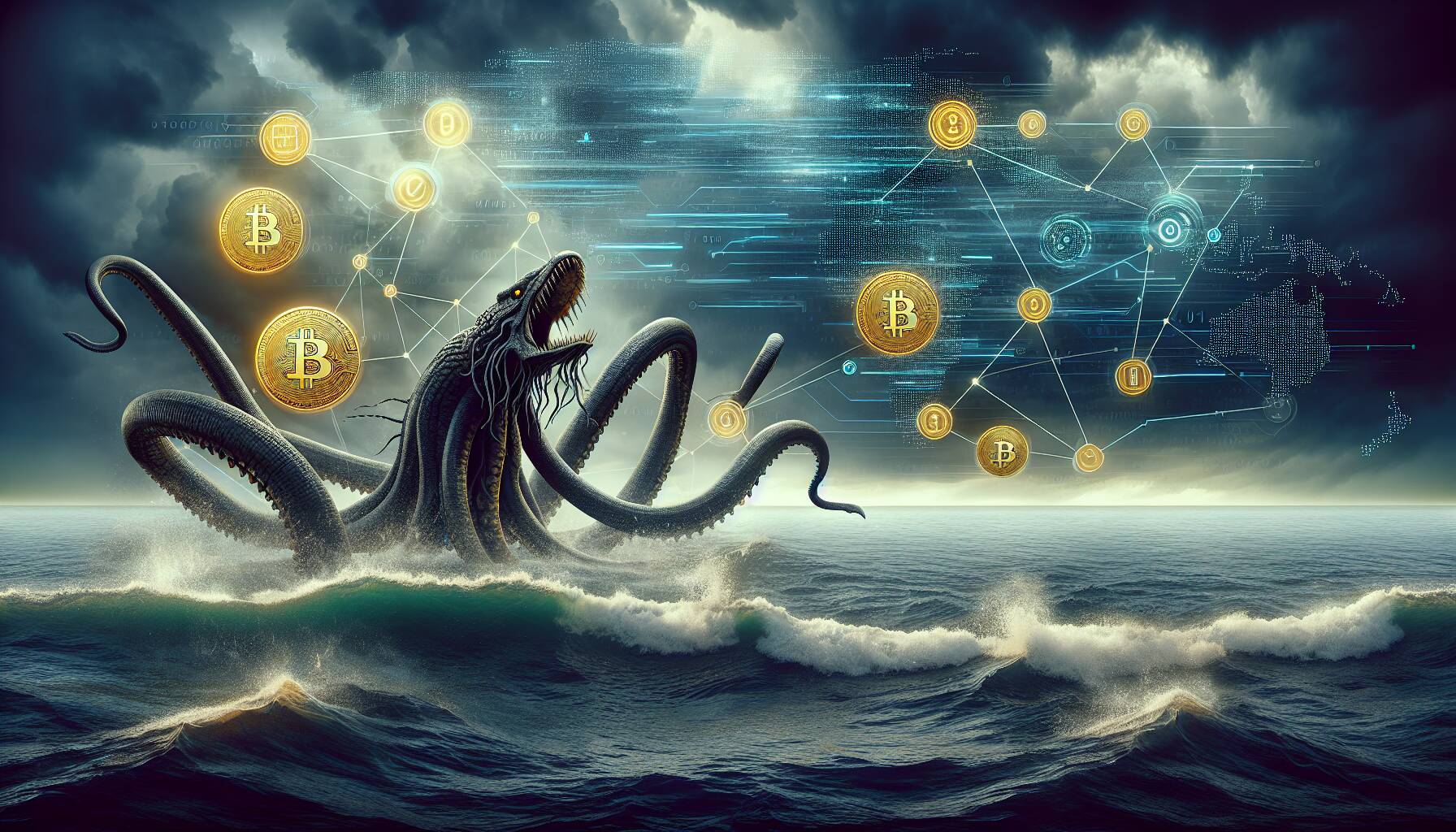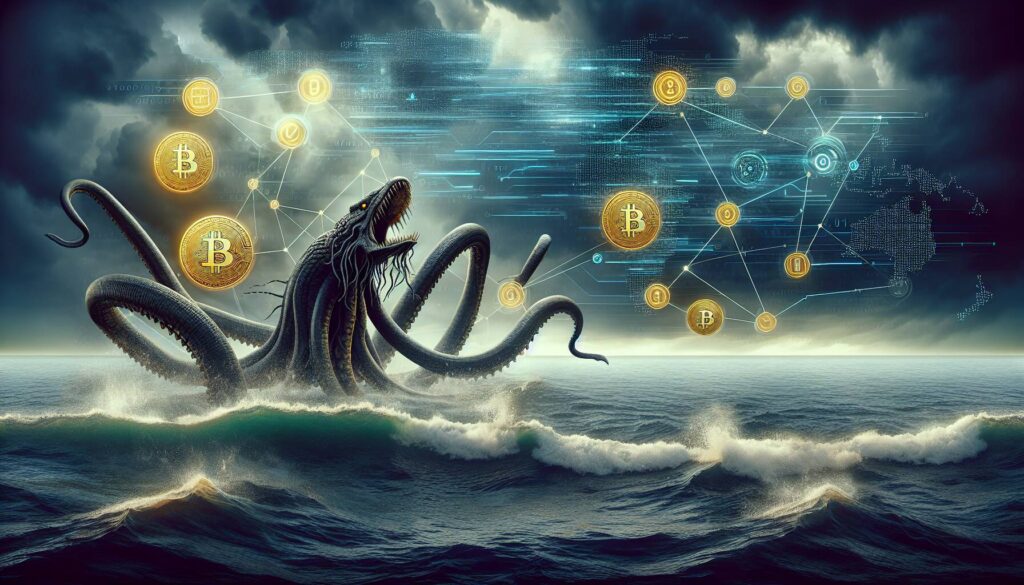In a significant development for the cryptocurrency landscape, Kraken is set to launch regulated crypto derivatives trading in Europe, aligning with the European Union’s Markets in Financial Instruments Directive (MiFID II). This new offering is available for both retail and institutional clients within the European Economic Area (EEA), showcasing Kraken’s commitment to compliant, transparent trading environments.
The opportunity to roll out these crypto derivatives, including perpetual and fixed maturity futures contracts, comes following Kraken’s acquisition of Greenfield Wealth, a Cypriot investment firm. This strategic move has granted Kraken a license from the Cyprus Securities and Exchange Commission (CySEC), enabling the exchange to provide a robust trading platform in Europe.
“This is not offering access to a new trading venue or new contracts,” said Shannon Kurtas, head of exchange at Kraken. “These are existing contracts that have material volume trading on them and along with that comes established liquidity.”
Kraken’s approach reflects a broader trend in the crypto industry, where major players are actively expanding their derivatives trading capabilities. For instance, U.S.-listed Coinbase has recently acquired the trading platform Deribit, while European exchanges like Bitstamp and Gemini are also enhancing their service offerings. Notably, Kraken’s recent acquisition of NinjaTrader for $1.5 billion marks a significant push into the U.S. derivatives market, complementing its European endeavors.
As Kraken gears up to provide these services, it’s important to note the substantial trading volume already associated with the contracts on offer, estimated between $1 billion and $2 billion per day. This level of activity not only supports better execution costs but also ensures efficient fiat rails for clients looking to manage collateral.
The launch is further bolstered by Kraken’s Embed crypto connectivity application, which opens doors for neobanks and fintechs across Europe to offer their clients access to both derivatives and spot trading. This development highlights the increasing symbiosis between traditional finance and the evolving crypto ecosystem.
In the backdrop of this expansion, the choice of registering in nimble jurisdictions such as Cyprus and Malta has become a popular strategy for well-funded crypto firms as they seek to navigate regulatory landscapes effectively. “More nimble is probably a fair characterization,” Kurtas noted, emphasizing the established experience and expertise available in these regions for retail access to financial derivatives.

Kraken Launches Regulated Crypto Derivatives Trading in Europe
Kraken’s new offerings in the European market mark a significant development in the cryptocurrency landscape. Here are the key points:
- Regulated Trading: Kraken is introducing regulated crypto derivatives trading in compliance with the EU’s MiFID II.
- New Product Offerings: The exchange will offer perpetual and fixed maturity futures contracts to both retail and institutional customers in the European Economic Area (EEA).
- Strategic Acquisition: Kraken secured its trading permission through the acquisition of Greenfield Wealth, which provided a license from the Cyprus Securities and Exchange Commission (CySEC).
- Market Movements: Other major exchanges such as Coinbase and Bitstamp are also expanding their capabilities in the crypto derivatives market.
- Established Volume: Kraken’s contracts already have significant daily trading volumes, between $1 billion and $2 billion, granting users better liquidity and execution costs.
- Enhanced Connectivity: The launch of the Embed crypto connectivity application allows neobanks and fintechs in Europe to offer both derivatives and spot trading to their clients.
- Nimble Jurisdictions: The choice of Cyprus and Malta demonstrates a trend of crypto firms seeking licenses in smaller, more flexible regulatory environments.
These developments are crucial for those interested in crypto trading as:
- Enhanced Opportunities: Retail and institutional investors will have access to regulated products, which may increase their confidence in trading cryptocurrencies.
- Improved Trading Conditions: Established volumes lead to better liquidity and lower costs, making it more feasible for individuals to engage in crypto trading.
- Access to Innovations: The introduction of new platforms and services can help more users participate in the crypto space, especially through fintech partnerships.
Kraken’s Strategic Entry into Regulated Crypto Derivatives in Europe
In a significant maneuver within the burgeoning crypto market, Kraken has officially launched regulated crypto derivatives trading in Europe, aligning its offerings with the European Union’s MiFID II regulations. This development not only sets Kraken apart from many competitors but also highlights a strategic approach that capitalizes on existing market dynamics and regulatory frameworks. The exchange’s recent acquisition of Greenfield Wealth has equipped it with the necessary licenses from the Cyprus Securities and Exchange Commission (CySEC), allowing it to tap into a lucrative segment of the financial market.
What gives Kraken a competitive edge is its comprehensive suite of offerings, which includes both perpetual and fixed maturity futures contracts aimed at both retail and institutional customers within the European Economic Area (EEA). This accessibility magnifies Kraken’s appeal over other exchanges in the space, such as Bitstamp and Gemini, which are also vying for customer attention but may lack the extensive regulatory groundwork Kraken has laid down. Furthermore, Kraken’s acquisition of Crypto Facilities establishes a foundation of trust and regulatory compliance, making it an attractive option for risk-averse investors.
However, Kraken’s aggressive licensing strategy could raise eyebrows among smaller competitors who may find it challenging to keep pace. The trend of securing licenses in smaller jurisdictions like Cyprus may lead to a perception of market entry barriers for newcomers. Companies looking to establish themselves in the crypto derivatives market will have to contend with Kraken’s already established liquidity and the operational efficiencies derived from its existing high-volume contracts. Thus, while Kraken benefits from a more straightforward pathway to liquidity, it may also unintentionally stifle innovation among smaller entities lacking the financial clout to acquire similar licenses or businesses.
On the other hand, Kraken’s initiative could pose challenges for neobanks and fintech firms looking to carve out their niche in the crypto space. The introduction of their Embed crypto connectivity application enables these institutions to offer derivatives and spot trading, which may saturate the market and drive competition prices down. While this opens doors for neobanks to diversify their service offerings, it also increases the stakes for them in a market that requires deep knowledge and agility to navigate the rapidly evolving landscape.
To sum it up, Kraken’s entry into the European crypto derivatives market represents a significant shift that could either bolster or challenge competitors and newcomers alike. Retail clients may benefit from a wider array of options and improved execution costs, while competitors must strategize effectively to maintain their market positions in this increasingly crowded space.

















